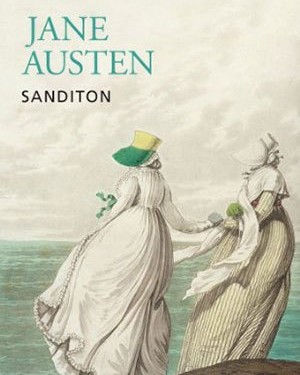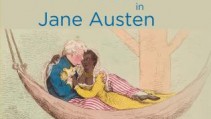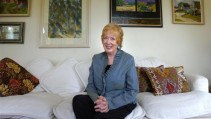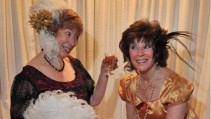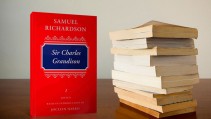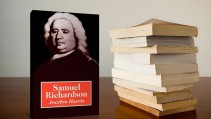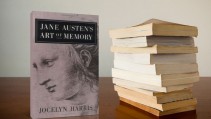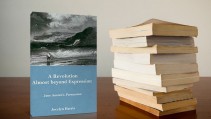Jane Austen’s final, unfinished, novel Sanditon depicts hypochondria, property speculation, and consumerism. The University of Otago, Medical Humanities blog Corpus recently featured an essay I wrote investigating the satire Austen employs in this work.
Between 27 January and 18 March 1817, Jane Austen wrote her final, unfinished, novel Sanditon, meaning a town built upon sand. This blistering satiric anatomy links hypochondria, property speculation, and consumerism—invalids seek out seaside resorts, property prices rise, and developers cash in on the new health fads of sea air and sea-bathing. In Sanditon, Austen demonstrates her modernity, her courage, and her worldliness. Yet again.
Jane Austen knew all about hypochondriacs, because Mrs. Austen was one. I cannot forgive her for occupying the sofa after a busy day gardening, while Jane lay dying on two chairs shoved together (Jane died on 18 July 1817). But as Mary Musgrove says in Persuasion, “I am very far from well; and Jemima has told me that the butcher says there is a bad sore-throat about. I dare say I shall catch it; and my sore-throats, you know, are always worse than anybody else’s.”
In Sanditon, Austen mocks the Parker family for turning medical diagnosis and treatment into a hobby. Diana Parker, for instance, recommends “Friction, Friction by the hand alone” for her brother’s sprain. At a time when servants were considered more robust than other men, she boasts that she cured Mrs. Sheldon’s coachman “by the immediate use of Friction alone steadily persevered in, (& I rubbed his Ancle with my own hand for six Hours without Intermission)—he was well in three Days.”
Diana complains of “suffering under a more severe attack than usual of my old grievance, Spasmodic Bile & hardly able to crawl from my Bed to the Sofa”, while Susan “has been suffering much from the Headache and Six Leaches a day for 10 days together relieved her so little that that we thought it right to change our measure.” Being “convinced on examination that much of the Evil lay in her Gum”, Diana has persuaded her to “attack the disorder there.” Susan has “accordingly had 3 Teeth drawn, & is decidedly better.” But her “Nerves are a great deal deranged. She can only speak in a whisper—and fainted away twice this morning on poor Arthur’s trying to suppress a cough.” Luckily, the sisters “are so used to “every operation—& have such Fortitude!” As Charlotte Heywood observes shrewdly, “some natural delicacy of Constitution”, with “an unfortunate turn for Medicine, especially quack Medicine, had given them an early tendency . . . to various Disorders.” She concludes, “there was Vanity in all they did, as well as all they endured.”
Arthur Parker “is almost as great an Invalid as themselves,—He is so delicate that he can engage in no Profession.” Mrs. Parker objects that he sits down “at 1 & 20, on the interest of his own little Fortune, without any idea of attempting to improve it, or of engaging in any occupation that may be of use to himself or others.” But as Diana admits, Arthur “is only too much disposed for Food. We are often obliged to check him.” Charlotte imagines him puny and delicate like his sisters, but he is “Broad made and Lusty—and with no other look of an Invalide, than a sodden complexion.” He asserts that, “The more Wine I drink (in Moderation) the better I am,” and, “A large Dish of rather weak Cocoa every evening, agrees with me better than any thing.” But as Charlotte observes, this rather weak cocoa “came forth in a very fine, dark coloured stream,” and his sisters cry out, “Oh! Arthur, you get your Cocoa stronger and stronger.”
Arthur complains that dry toast is “a very bad thing for the Stomach. Without a little Butter to soften it, it hurts the Coats of the Stomach . . . It irritates like a nutmeg grater.” He cannot “get command of the Butter, however, without a struggle; His Sisters accusing him of eating a great deal too much.” Charlotte watches as he “scrupulously scraped off almost as much butter as he put on, & then seize an odd moment for adding a great dab just before it went into his Mouth.” Although he claims that green tea acts on him “like Poison and wd entirely take away the use of my right side, before I had swallowed it 5 minutes”, rational Charlotte replies coolly that it sounds rather odd but “it would be proved to be the simplest thing in the World, by those who have studied right sides & Green Tea scientifically & thoroughly understand all the possibilities of their action on each other.”
On the “probability of [Sanditon’s] becoming a profitable Speculation,” Mr. Parker and the other principal land-holder had “engaged in it, & planned & built, & praised & puffed, and raised it to a something of young Renown.” A “complete Enthusiast” for the development, he praises the sea air and the sea bathing together as “nearly infallible, one or the other of them being a match for every Disorder of the Stomach, the Lungs or the Blood; They were anti-spasmodic, anti-pulmonary, anti-sceptic, anti-bilious & anti-rheumatic”; they were “healing, softing, relaxing—fortifying & bracing—seemingly just as was wanted—sometimes one, sometimes the other.” In short:
If the Sea breeze failed, the Sea-Bath was the certain corrective; and where Bathing disagreed, the Sea Breeze alone was evidently designed by Nature for the cure.”
Attracted by the hype of speculative development, consumerism quickly follows. “Civilization! Civilization indeed! Cried Mr P[arker],—delighted—Look my dear Mary—Look at William Henley’s windows.—Blue Shoes, & nankin Boots.” As he exclaims, “Who would have expected such a sight at a Shoemaker’s in old Sanditon!—This is new within the Month. There was no blue Shoe when we passed this way a month ago. Glorious indeed!—Well, I think I have done something in my Day.”
What would Jane Austen have done with this tantalising fragment? One can only marvel that in this satiric critique, as light and bright and sparkling as anything she ever wrote, she laughed at her mortal illness, and defied it.

